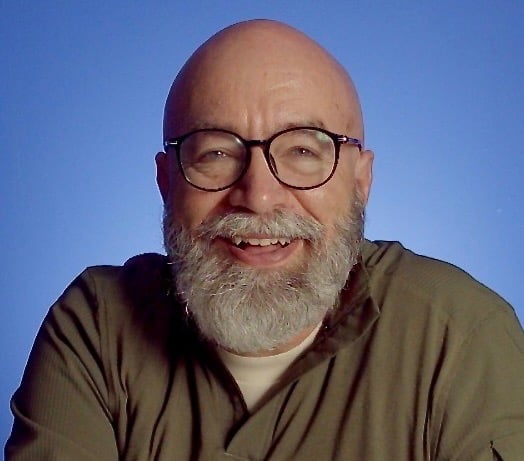A little History lesson

Mark L. Vincent


A little history lesson
I'm frequently asked to share how I became involved in Process Consulting and what ultimately led to establishing the Society for Process Consulting. Because it involves so many people, this story could have many versions! Here is one of mine:

In 1987, an elder of the church I served as pastor called and asked to meet with me during office hours. He was taking time off from his workplace to come. Conversations like these are almost always portentous and rarely times where encouraging words are the centerpiece.
The meeting lasted only a short time. He wanted me to know that even though the Church Council had met the night before and voted unanimously on some critical matters, he had changed his mind and vote after going home and discussing it with his wife. At least he was honest about it! I did not look forward to what would come next, as it short-circuited our ability to move forward as a congregation. And, I certainly did not envy the marriage my elder was in.
<<Sigh>>
This was a pattern, and not just for the relationships with this elder, nor for my work in the urban core of Fort Wayne, Indiana. Other leaders had the same experience with their boards and senior leaders. The real meetings were not taking place in formal settings; informal ones kept trumping and unraveling the formal. Creative and committed leaders among us were discouraged because honest conversations did not occur during the scheduled meeting but in bedrooms and coffee shops, around dinner tables, on front porches or golf courses, and in whispers. The real power guiding the organization was often outside the room. Something needed to change, and I did not know what. I walked home on the maple-lined sidewalks that day with much despair.
I was enrolled in graduate school then and had not decided where to direct my thesis work. Out of the conversation with this elder, my solemn walk home, and my desire to figure something out, an idea hatched. Why not look at the passages of scripture in which people had decisions to make? Why not identify where/how the process worked and where/how it did not work? There were times when they celebrated their decisions. Why not study and then draw from them? And then, why not lay that learning beside a similar study of teamwork and group decision-making in the social sciences? Finally, why not create a curriculum* from what I would learn?
In addition to the scriptural texts (particularly the book of Acts), the academic research immersed me in the Quaker and Jesuit traditions, as these were the two communities that long practiced group discernment. The Harvard Negotiation Project was also underway at the time, pioneering the research in the social sciences and giving rise to the best-seller Getting to Yes.
It was much later that I was introduced to other voices, such as E.F. Schumacher, Peter Block, Francine LaFontaine, Edgar Schein, and Etienne Wengerd, whose research and writing influenced me and ultimately the curriculum and practice taught via the Society for Process Consulting.
In developing my thesis, I learned almost all process errors grow from not being able to identify WHY a decision/action/evaluation is needed, WHO will play which role in the process, WHAT the criteria of success are that each group member cares about; WHEN the work needs to be completed; WHERE the work will take place (maybe in a domain or a specific geography); and HOW the group will proceed. In short, something was wrong or missing in the design of the process, if it was designed at all.
We held that first training in the back room of a restaurant thirty-five years ago. The church elder in my story participated and found himself able to articulate how much more he preferred to work with computers than he did people. He stepped down as an elder and his wife joined our church council in a far more productive turn of events. Out informal and formal began to align!
Not long after this, I got a call from a Day Care Center board in Ohio—could I help them? Their director had injured a child on the playground. Whether the harm caused to the child was accidental or on purpose was in dispute, but this was also beside the point since everyone involved was threatening to sue the all-volunteer and newly-seated board. Answering Why, Who, What, When, Where, and How did not give the answers but did design the process and how they arrived at their answers. There was a settlement in the end, and the Day Care Center survived. That good outcome led to other phone calls, resulting in new engagements and then still others.
We are trying to move ownership of our hardware store and lumber yard to the fourth generation of our family, but the two heirs don't like each other!
Our major donor gave half their promised donation but then disappeared and isn't returning our phone calls. We've already broken ground and taken out a loan.
We can't decide how to distribute our scholarship funds.
We are stuck in our attempt to develop a global charter for cooperation among five countries.
The owners are conflicted about whether to take some distributions after several years of extreme sacrifice or to reinvest, given the current market's business opportunities.
Help! The founding CEO and her potential successor are battling in front of the team, and we are bleeding talent.
The ability to relentlessly, graciously, consistently, and artfully design and then follow a process from beginning to end is the heart of process consulting as I've come to understand and practice it. The completion of a Process Design that identifies Why, Who, What, When, Where, and How is frequently a first action and a significant distinctive—easy to learn, harder to implement, and perhaps the most challenging to keep distraction-free and remain mentally disciplined.
Process Consulting that begins with a Process Design helps the Process Consultant maintain Listening, Helping, and Learning posture throughout the Client engagement.
Repeatedly.
![]()

Mark L. Vincent
Executive Advisor and Founder

Related Posts
.png?height=175&name=Society%20Header%20(1).png)
.png?height=175&name=Society%20Header%20(30).png)
Process Consulting Explained...Again...Visually!


/Matt%20Visser%20Headshot%20(300x300).png?height=70&name=Matt%20Visser%20Headshot%20(300x300).png)